NS100 Fundamentals of Naval Science Radiotelephone Procedure Objectives:

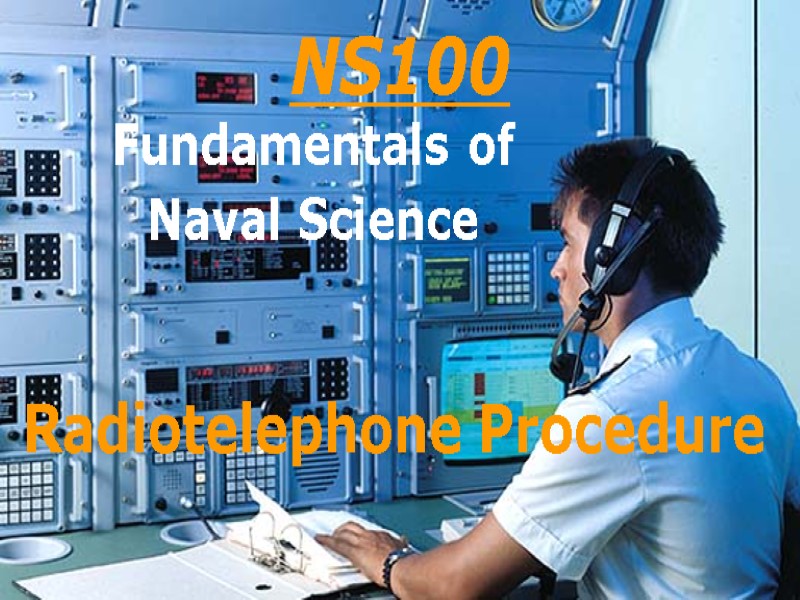
NS100 Fundamentals of Naval Science Radiotelephone Procedure
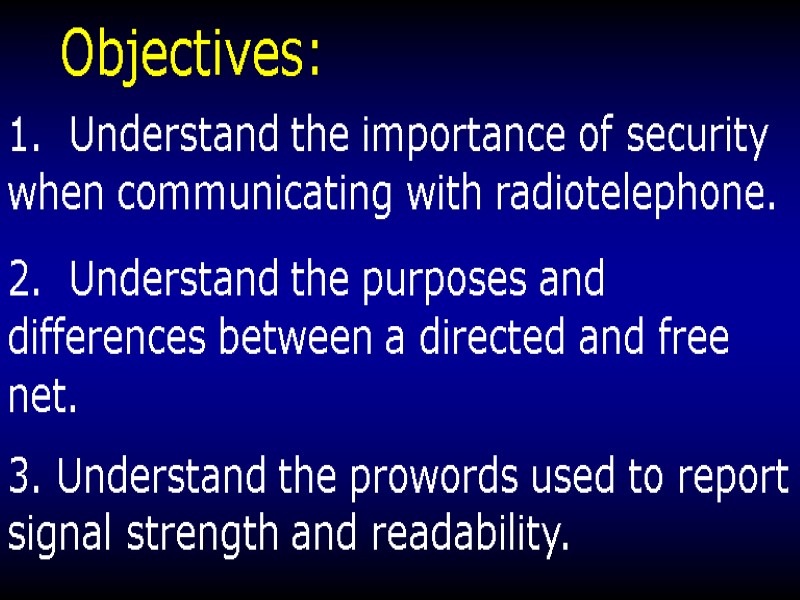
Objectives: 1. Understand the importance of security when communicating with radiotelephone. 2. Understand the purposes and differences between a directed and free net. 3. Understand the prowords used to report signal strength and readability.
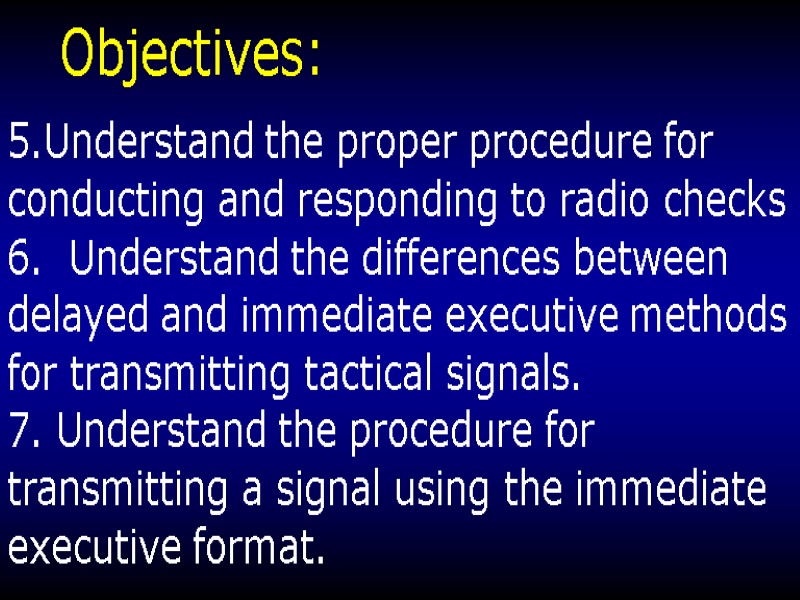
Objectives: 5.Understand the proper procedure for conducting and responding to radio checks 6. Understand the differences between delayed and immediate executive methods for transmitting tactical signals. 7. Understand the procedure for transmitting a signal using the immediate executive format.
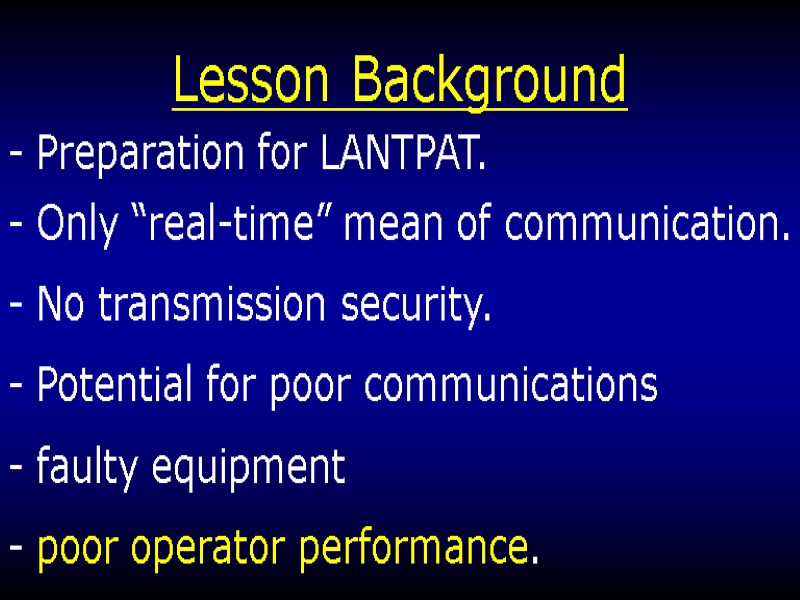
Lesson Background - Preparation for LANTPAT. - Only “real-time” mean of communication. - No transmission security. - Potential for poor communications - faulty equipment - poor operator performance.
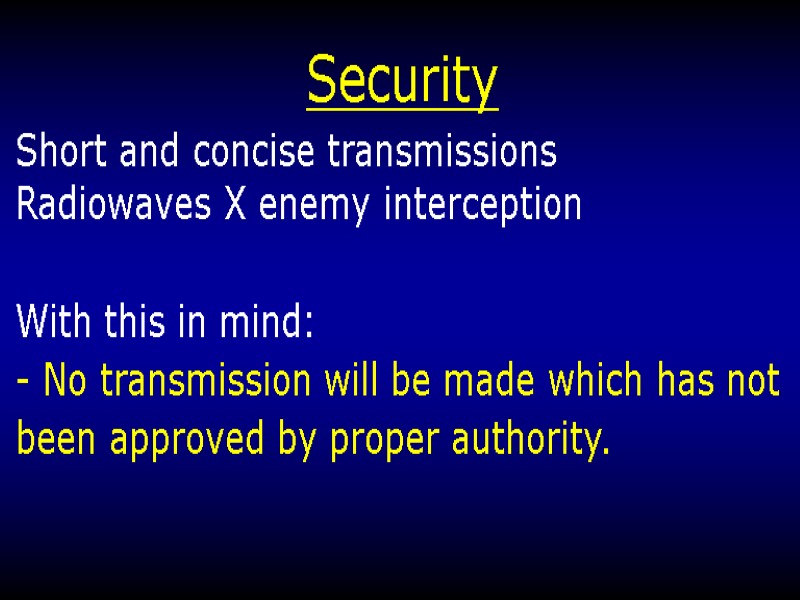
Security Short and concise transmissions Radiowaves X enemy interception With this in mind: - No transmission will be made which has not been approved by proper authority.
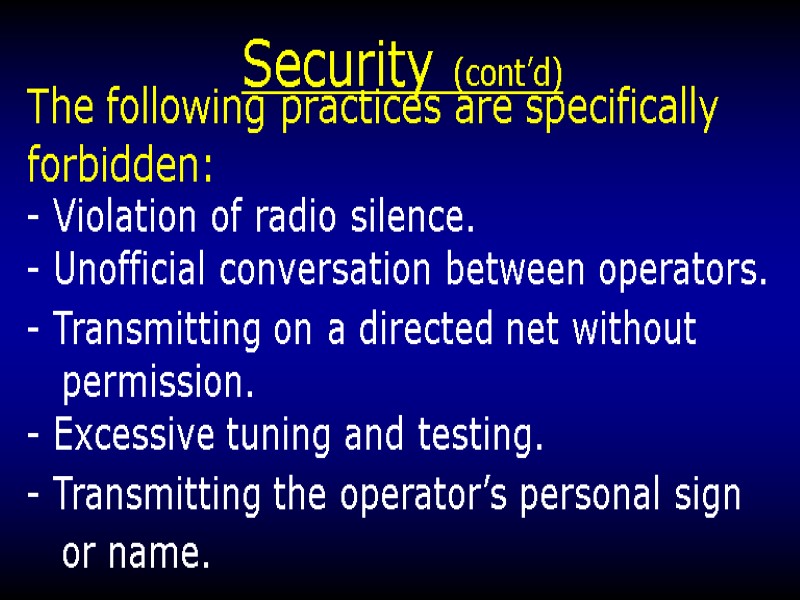
Security (cont’d) - Violation of radio silence. - Unofficial conversation between operators. - Transmitting on a directed net without permission. - Excessive tuning and testing. - Transmitting the operator’s personal sign or name. The following practices are specifically forbidden:
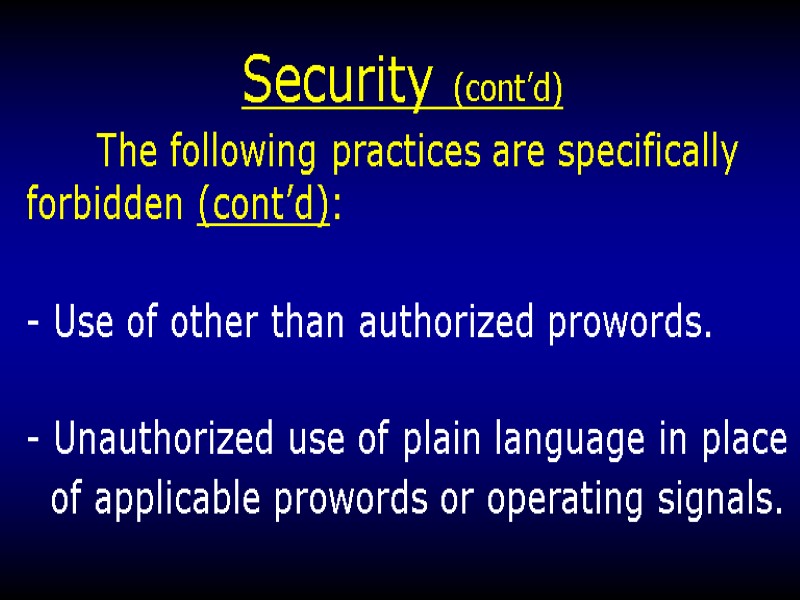
Security (cont’d) The following practices are specifically forbidden (cont’d): - Use of other than authorized prowords. - Unauthorized use of plain language in place of applicable prowords or operating signals.
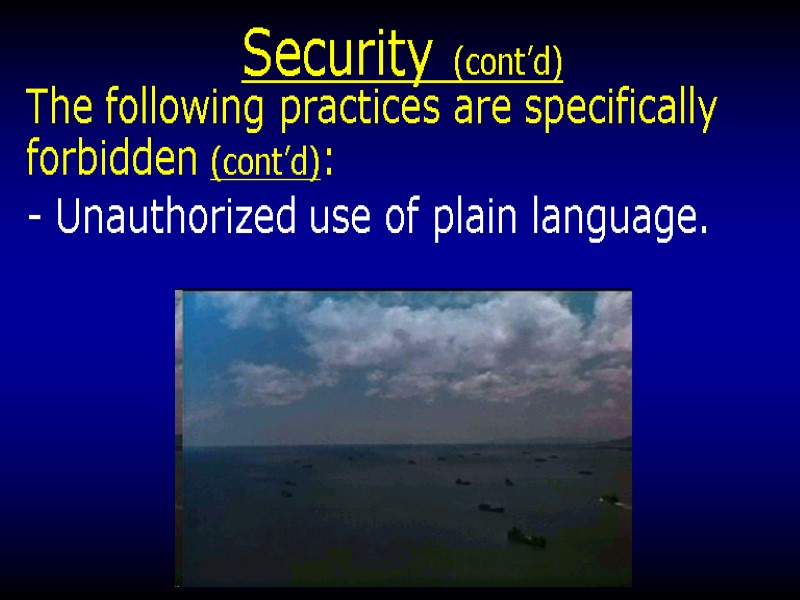
Security (cont’d) The following practices are specifically forbidden (cont’d): - Unauthorized use of plain language.
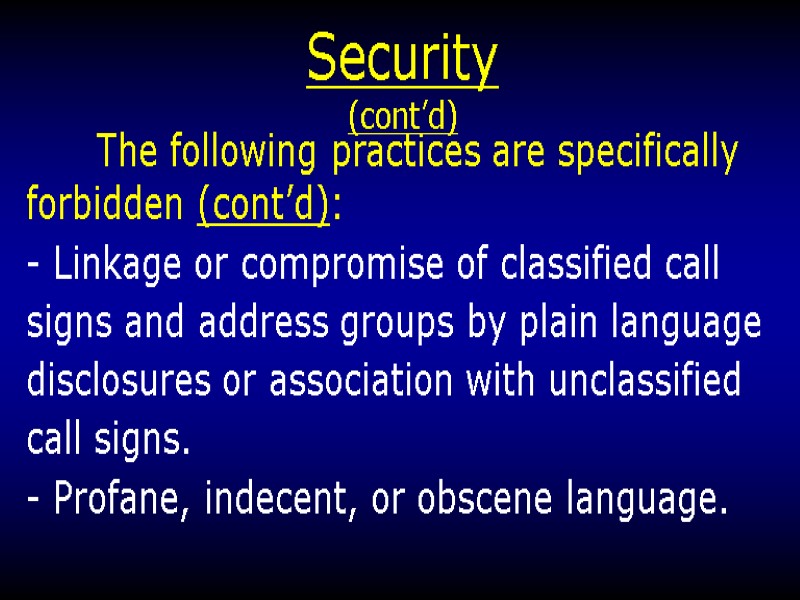
Security (cont’d) The following practices are specifically forbidden (cont’d): - Linkage or compromise of classified call signs and address groups by plain language disclosures or association with unclassified call signs. - Profane, indecent, or obscene language.
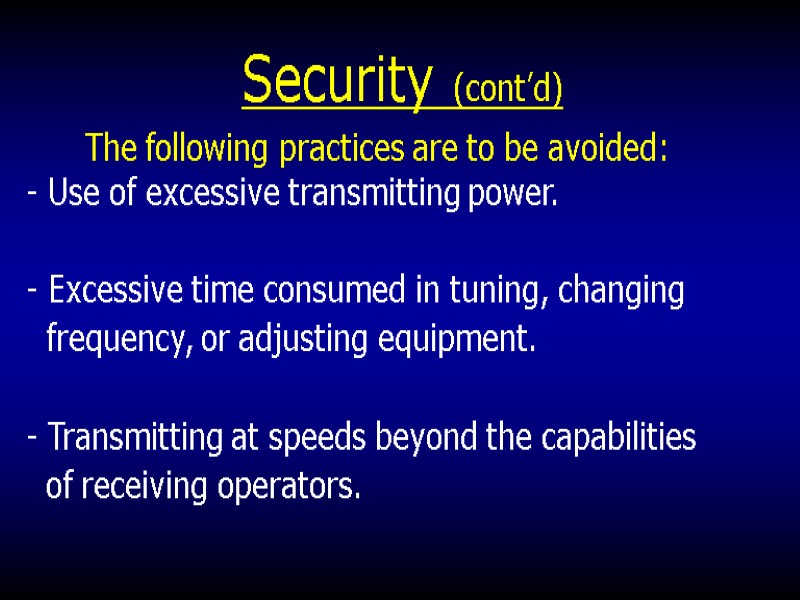
Security (cont’d) The following practices are to be avoided: - Use of excessive transmitting power. - Excessive time consumed in tuning, changing frequency, or adjusting equipment. - Transmitting at speeds beyond the capabilities of receiving operators.
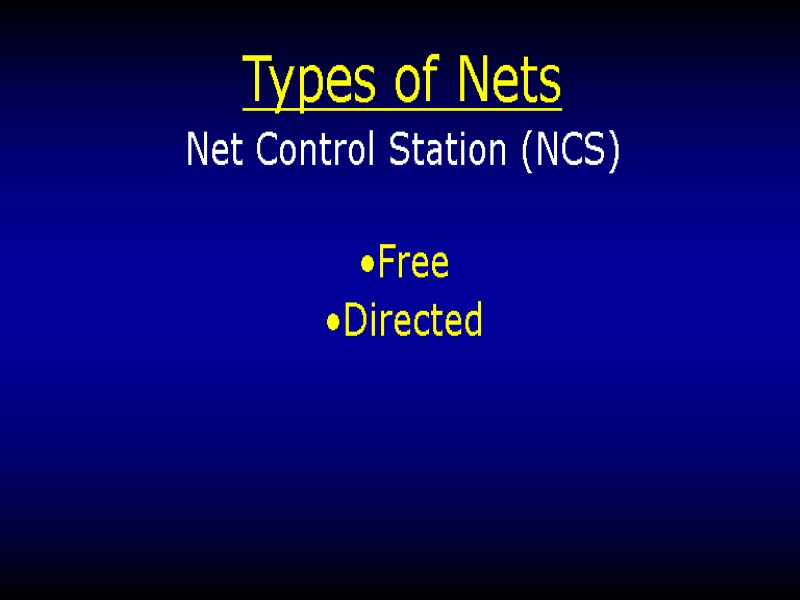
Types of Nets Net Control Station (NCS) Free Directed
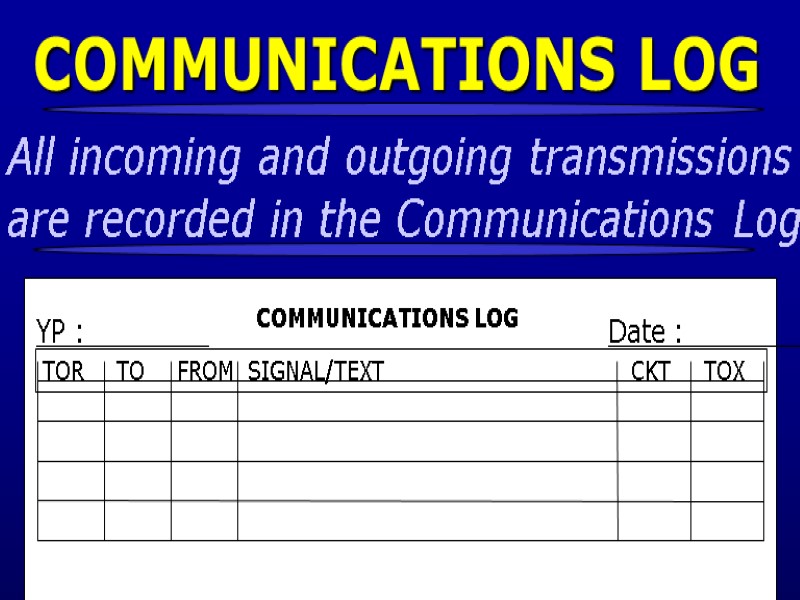
COMMUNICATIONS LOG YP : Date : COMMUNICATIONS LOG All incoming and outgoing transmissions are recorded in the Communications Log

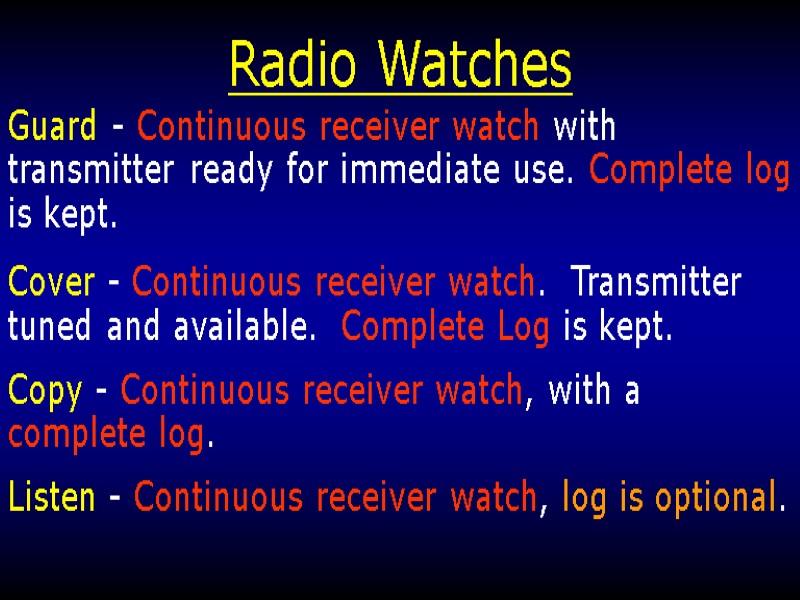
Radio Watches Guard - Continuous receiver watch with transmitter ready for immediate use. Complete log is kept. Cover - Continuous receiver watch. Transmitter tuned and available. Complete Log is kept. Copy - Continuous receiver watch, with a complete log. Listen - Continuous receiver watch, log is optional.
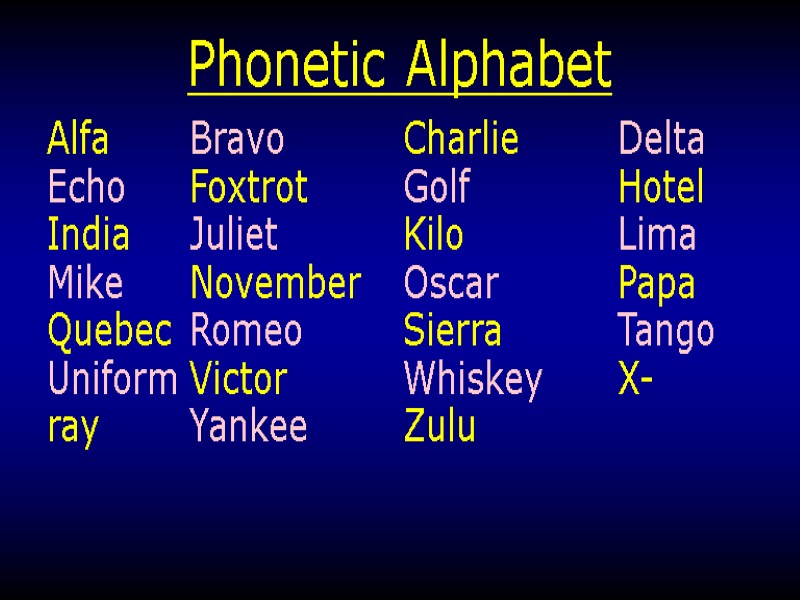
Phonetic Alphabet Alfa Bravo Charlie Delta Echo Foxtrot Golf Hotel India Juliet Kilo Lima Mike November Oscar Papa Quebec Romeo Sierra Tango Uniform Victor Whiskey X-ray Yankee Zulu
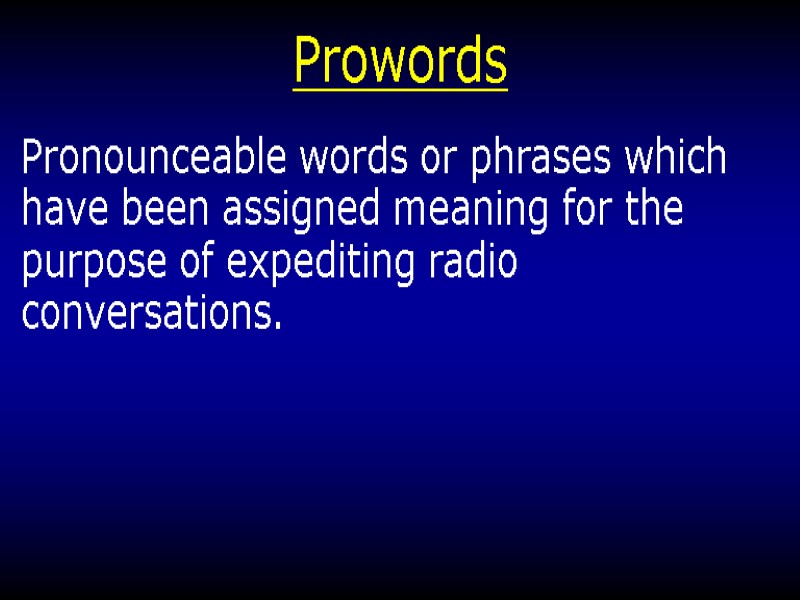
Prowords Pronounceable words or phrases which have been assigned meaning for the purpose of expediting radio conversations.
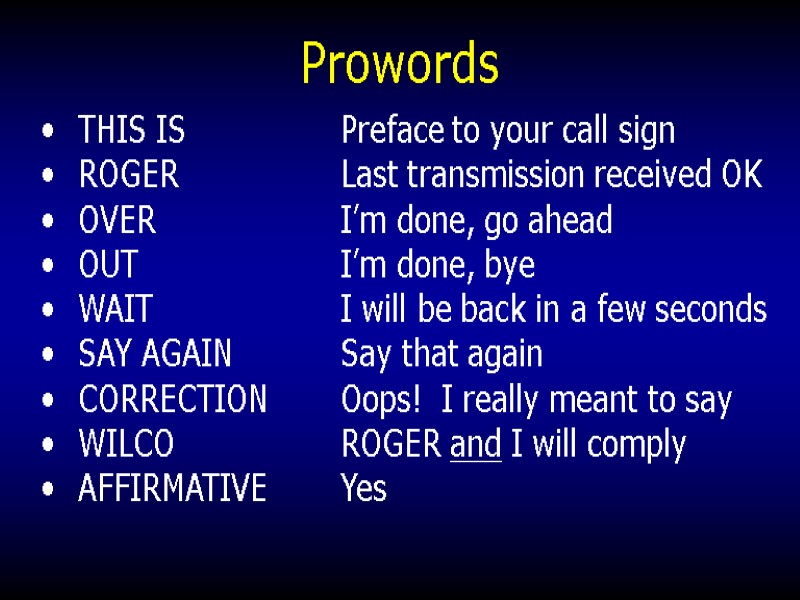
Prowords THIS IS Preface to your call sign ROGER Last transmission received OK OVER I’m done, go ahead OUT I’m done, bye WAIT I will be back in a few seconds SAY AGAIN Say that again CORRECTION Oops! I really meant to say WILCO ROGER and I will comply AFFIRMATIVE Yes
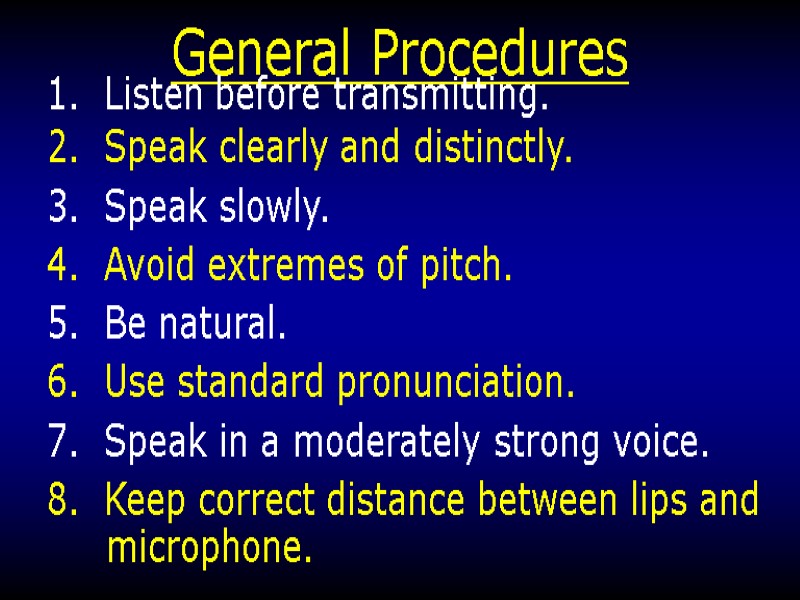
General Procedures 1. Listen before transmitting. 2. Speak clearly and distinctly. 3. Speak slowly. 4. Avoid extremes of pitch. 5. Be natural. 6. Use standard pronunciation. 7. Speak in a moderately strong voice. 8. Keep correct distance between lips and microphone.
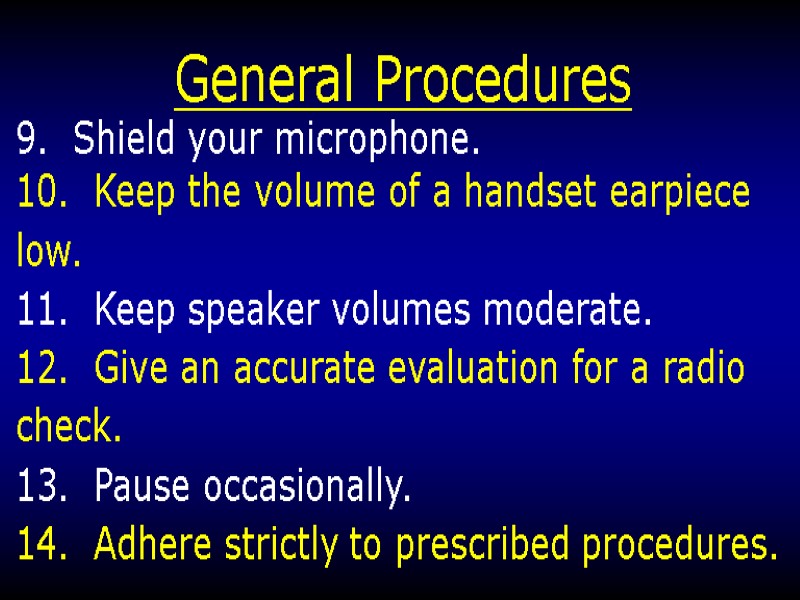
General Procedures 9. Shield your microphone. 10. Keep the volume of a handset earpiece low. 11. Keep speaker volumes moderate. 12. Give an accurate evaluation for a radio check. 13. Pause occasionally. 14. Adhere strictly to prescribed procedures.
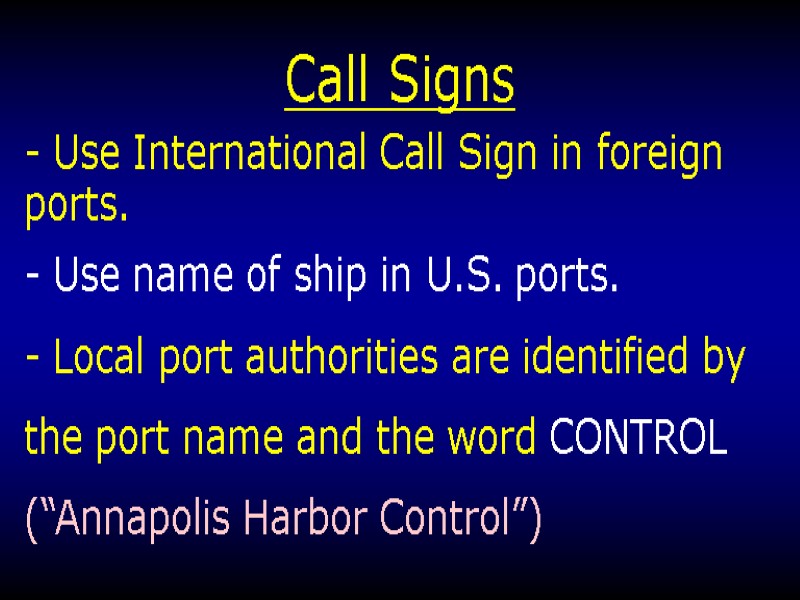
Call Signs - Use International Call Sign in foreign ports. - Use name of ship in U.S. ports. - Local port authorities are identified by the port name and the word CONTROL (“Annapolis Harbor Control”)
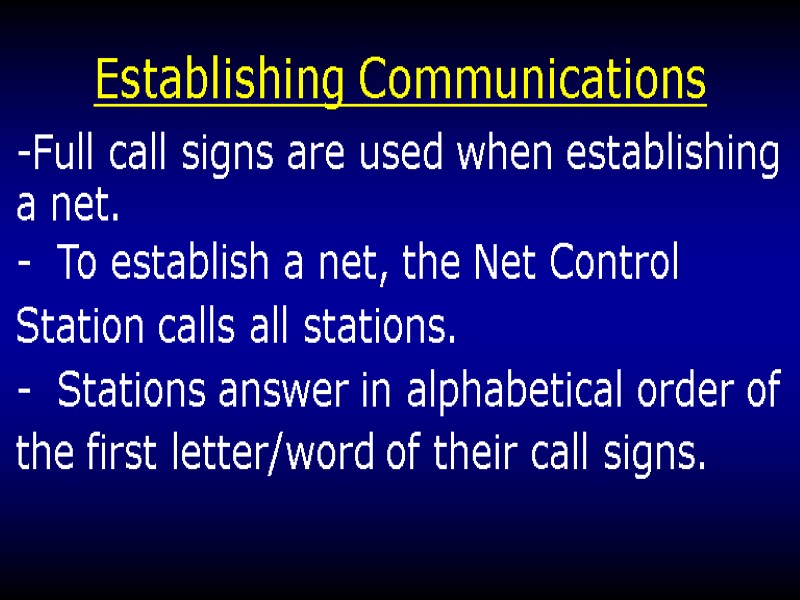
Establishing Communications -Full call signs are used when establishing a net. - To establish a net, the Net Control Station calls all stations. - Stations answer in alphabetical order of the first letter/word of their call signs.
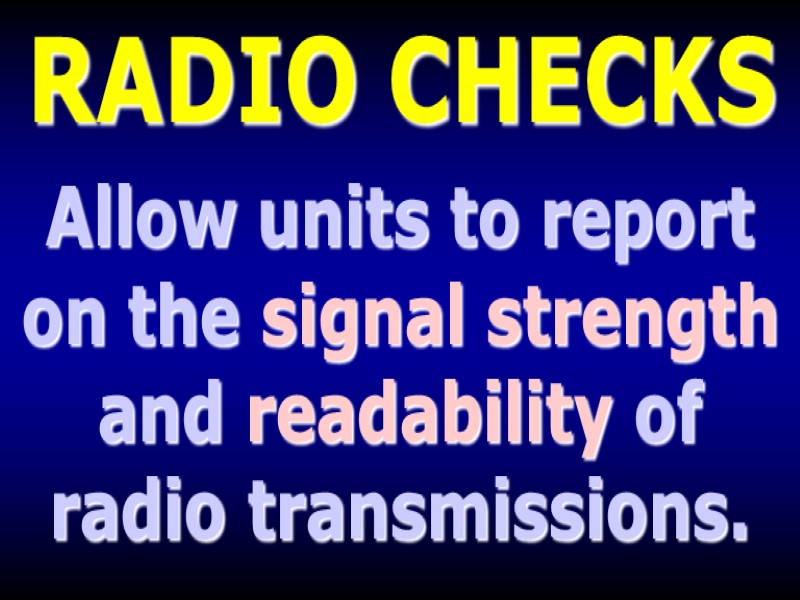
RADIO CHECKS Allow units to report on the signal strength and readability of radio transmissions.
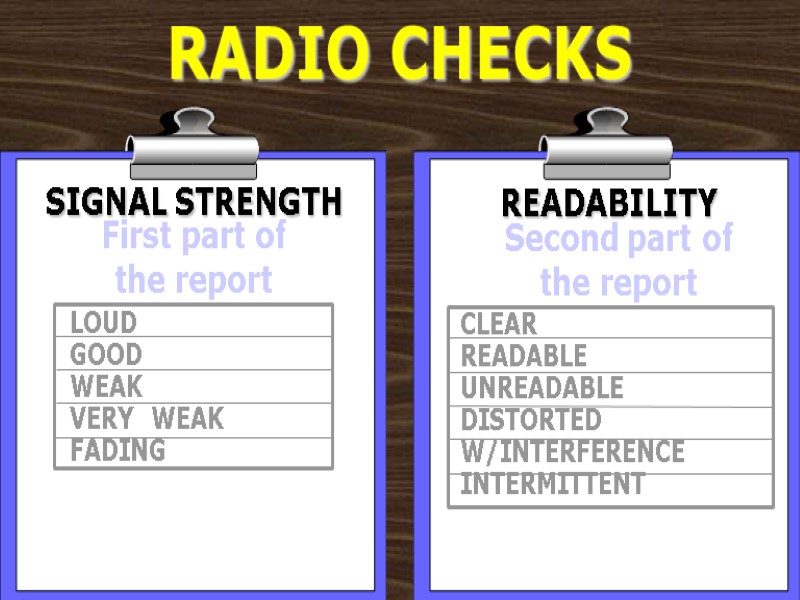
RADIO CHECKS LOUD GOOD WEAK VERY WEAK FADING SIGNAL STRENGTH READABILITY First part of the report CLEAR READABLE UNREADABLE DISTORTED W/INTERFERENCE INTERMITTENT Second part of the report
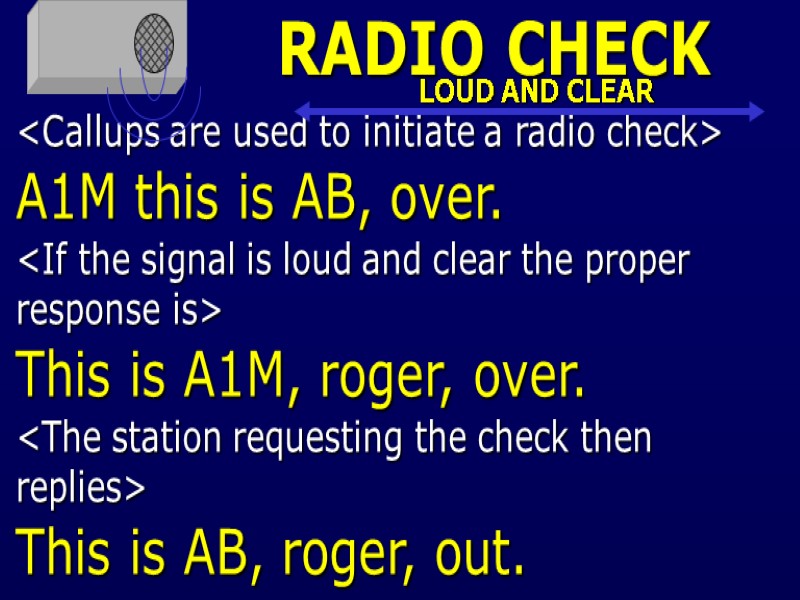
RADIO CHECK
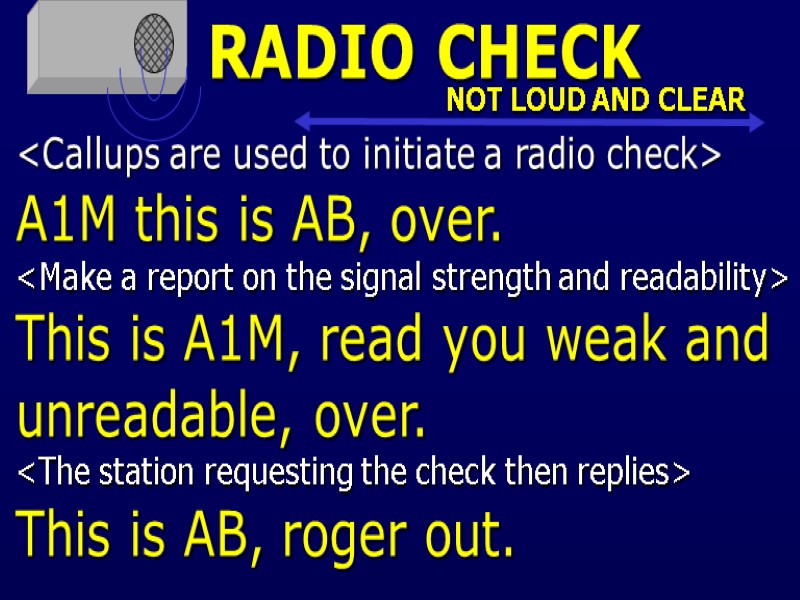
RADIO CHECK
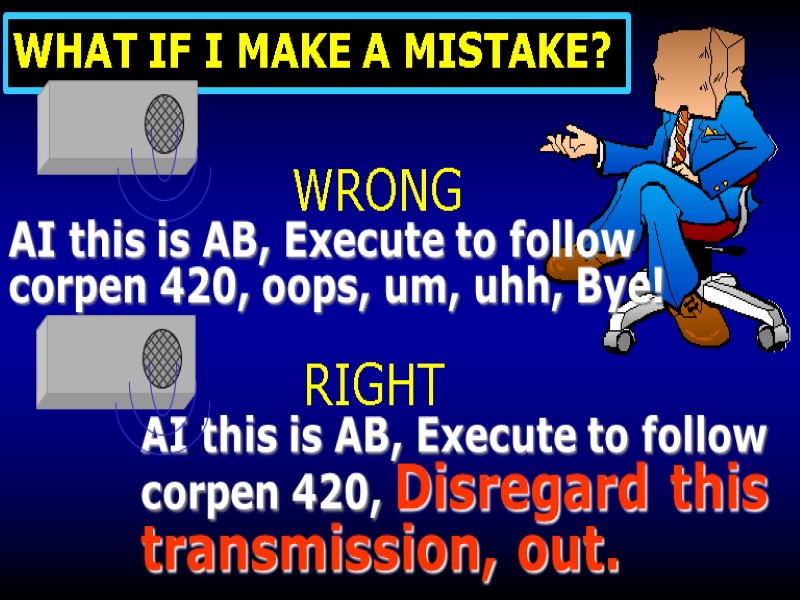
AI this is AB, Execute to follow corpen 420, Disregard this transmission, out. WRONG RIGHT AI this is AB, Execute to follow corpen 420, oops, um, uhh, Bye!
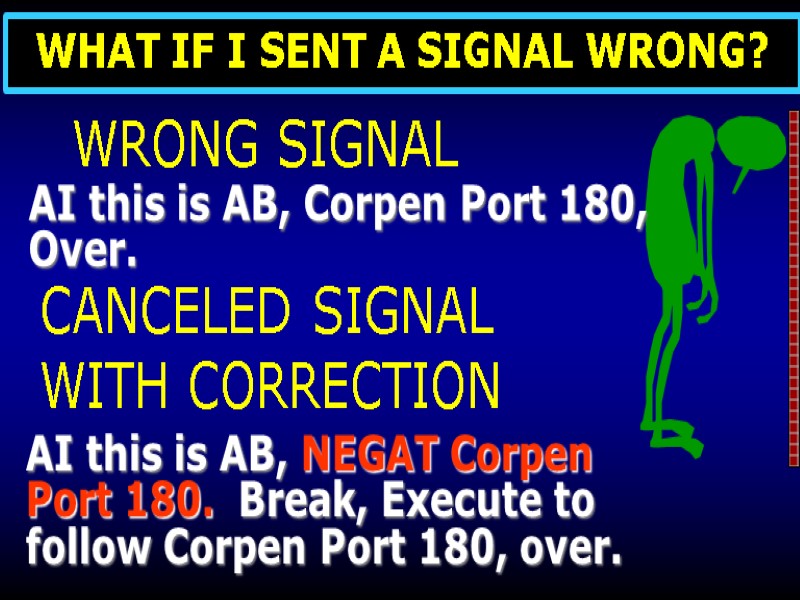
AI this is AB, NEGAT Corpen Port 180. Break, Execute to follow Corpen Port 180, over. AI this is AB, Corpen Port 180, Over. WRONG SIGNAL CANCELED SIGNAL WITH CORRECTION
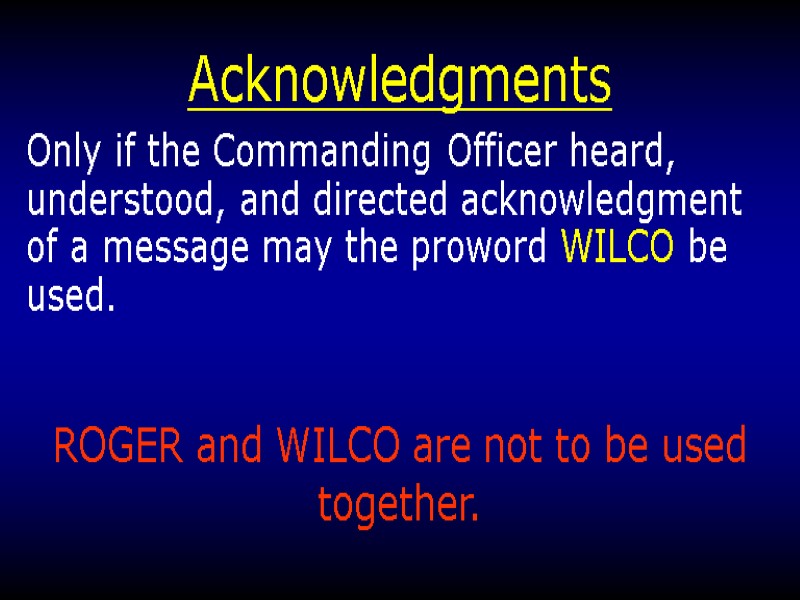
Acknowledgments Only if the Commanding Officer heard, understood, and directed acknowledgment of a message may the proword WILCO be used. ROGER and WILCO are not to be used together.
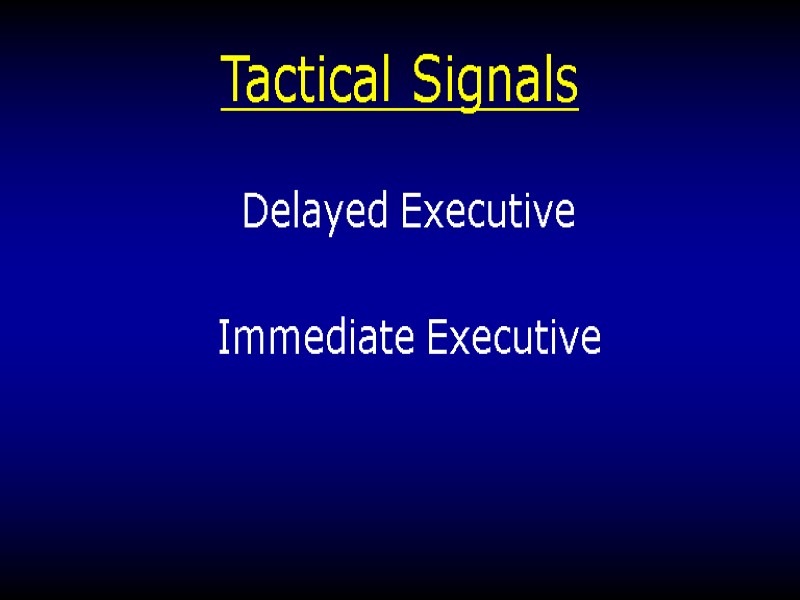
Tactical Signals Delayed Executive Immediate Executive
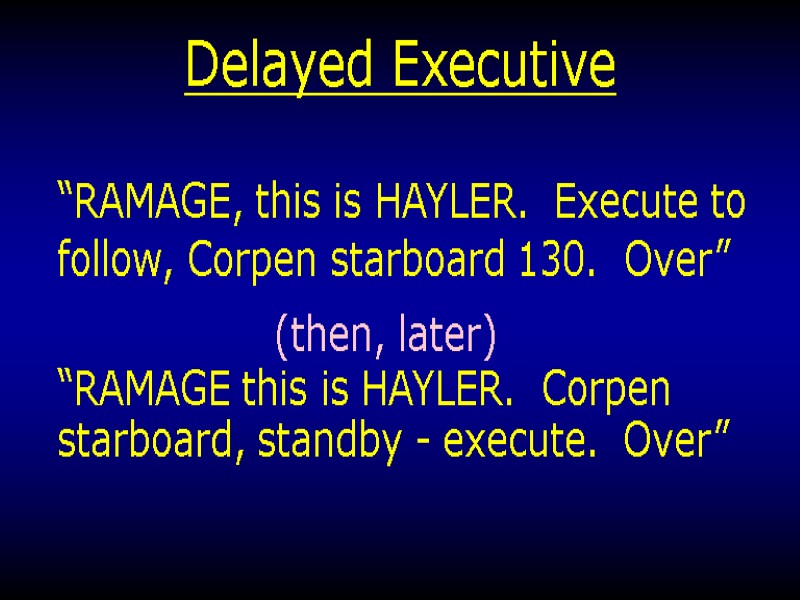
Delayed Executive “RAMAGE, this is HAYLER. Execute to follow, Corpen starboard 130. Over” “RAMAGE this is HAYLER. Corpen starboard, standby - execute. Over” (then, later)
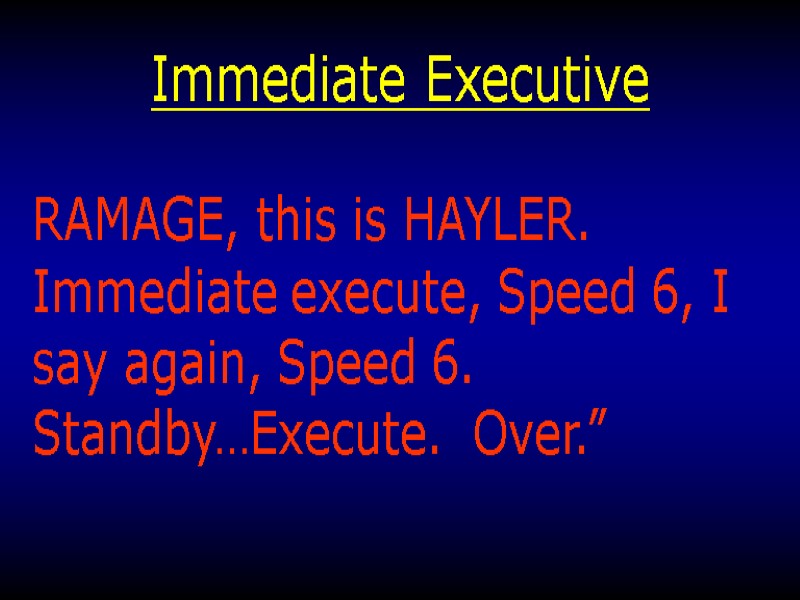
Immediate Executive RAMAGE, this is HAYLER. Immediate execute, Speed 6, I say again, Speed 6. Standby…Execute. Over.”
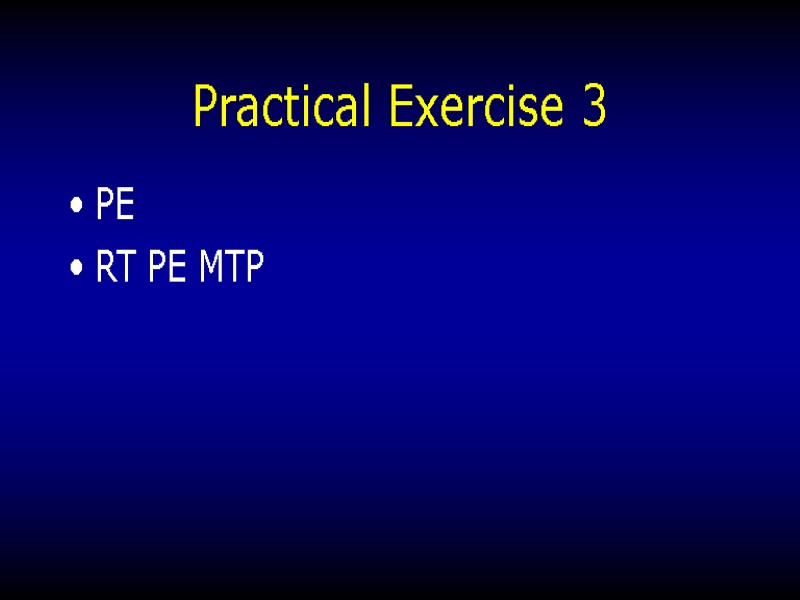
Practical Exercise 3 PE RT PE MTP
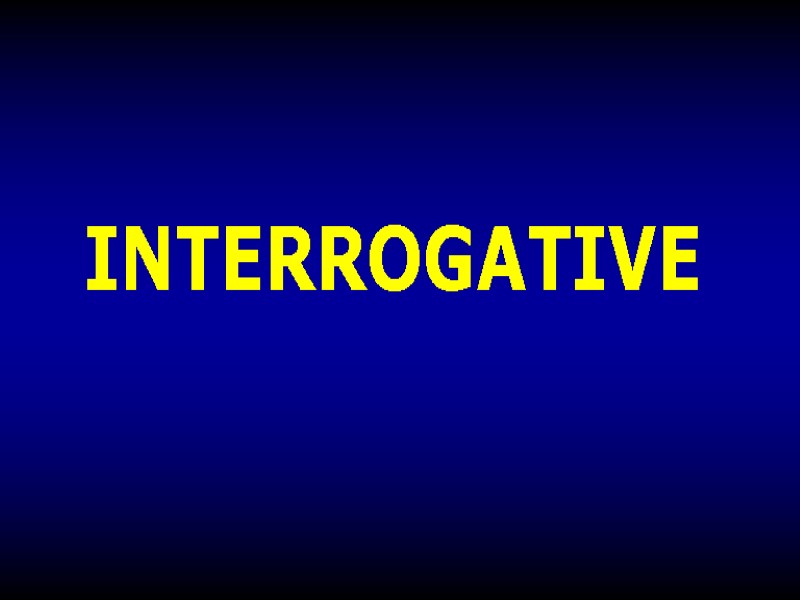
INTERROGATIVE
1164-lesson-6-rt-procedures424.ppt
- Количество слайдов: 33

